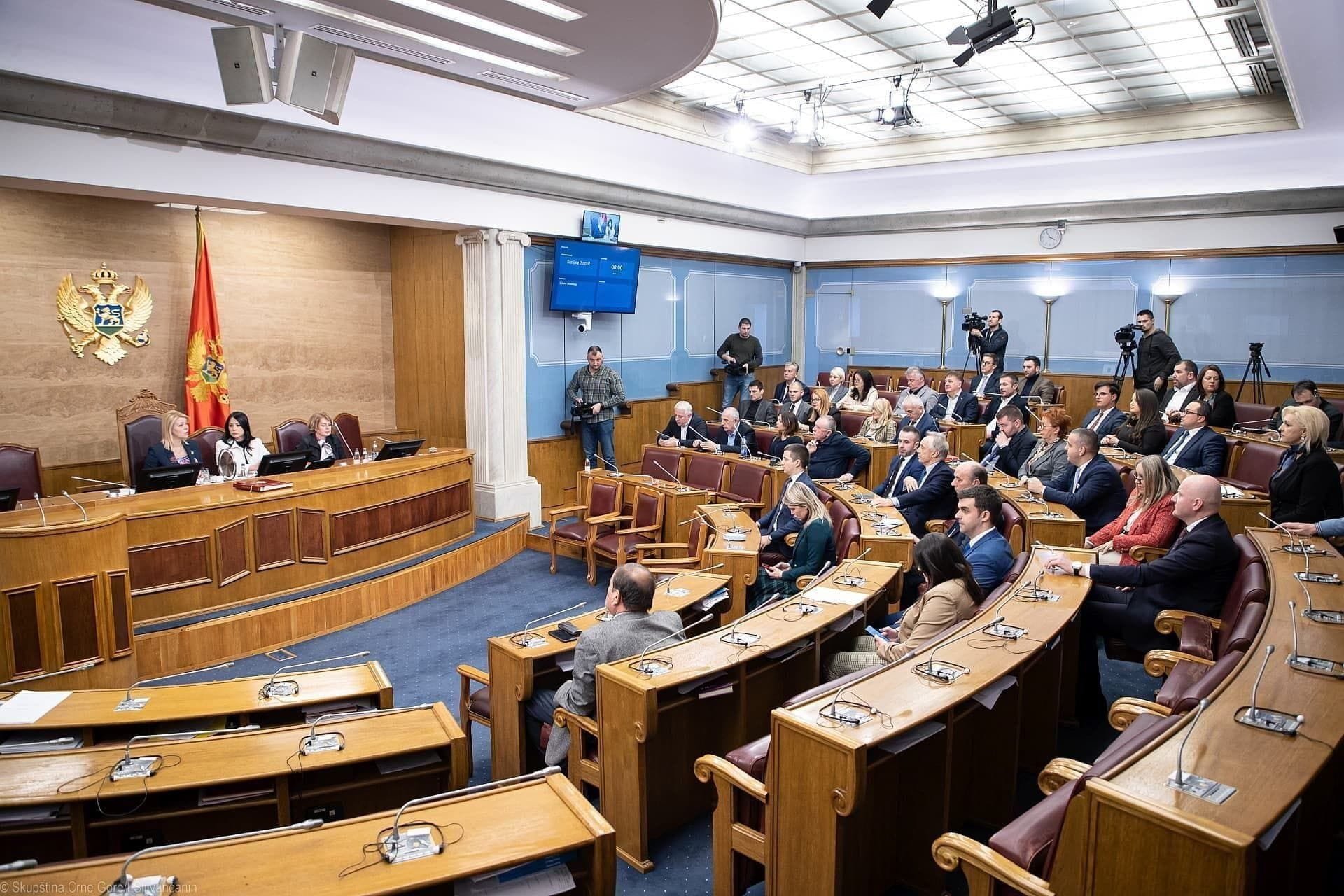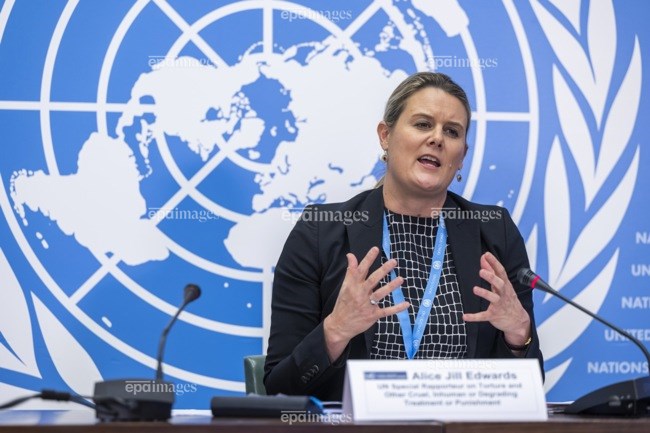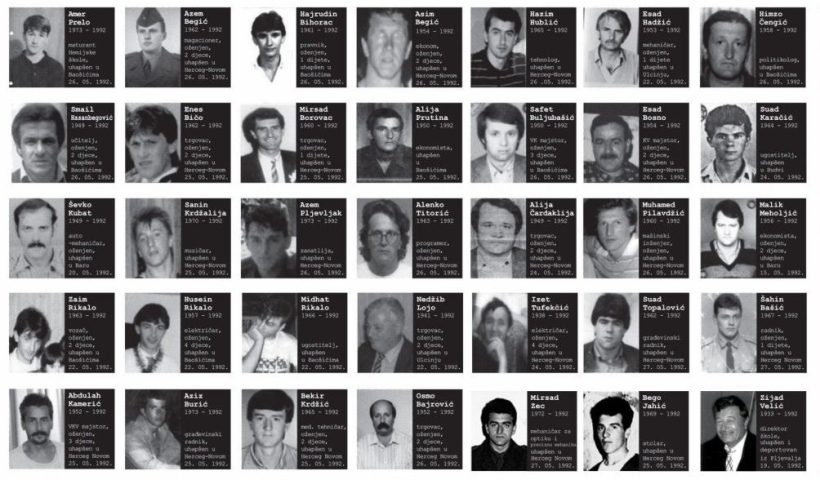
A DISSOLVED ASSEMBLY CAN PERFORM ONLY CURRENT AND URGENT TASKS
04/04/2023
U.N. SPECIAL RAPPORTEUR ON TORTURE HAS BEEN NOTIFIED OF INVESTIGATIONS OF POLICE TORTURE AND UNLAWFUL ACTIONS OF MINISTER ADŽIĆ
12/04/2023ECtHR REJECTS THE APPLICATION OF DEPORTATION VICTIMS: THEY LACK VICTIM STATUS, THE STATE SUFFICIENTLY RECOGNISED VIOLATION OF THEIR RIGHTS EVEN WITHOUT PUNISHING THOSE RESPONSIBLE

The European Court of Human Rights issued a decision rejecting the application of 9 women – mothers, wives, sisters and daughters of 6 refugee victims who were unlawfully arrested by Montenegrin civil servants in May 1992 and handed over to the hostile Bosnian Serb army in Bosnia and Herzegovina to be used as hostages. Shortly after their extradition, they were killed in camp Foča and at another unknown location.
The applicants claimed that Montenegro was responsible for the violation of Articles 2 (Right to Life) and 3 (Prohibition of Torture) of the European Convention on Human Rights because it failed to conduct an effective investigation, which includes effective prosecution and punishment of those responsible for the unlawful arrest and the extradition of their closest relatives to the enemy army on the territory of another country, which then killed them:
“The relevant authorities of Montenegro did not properly qualify that crime, nor did they punish anyone for it, including those who ordered it, whom they did not even investigate. The conducted investigation did not include all the persons who were responsible for the violation of the rights of the injured parties, especially not those who were the most responsible and without whose knowledge, consent and support the action in which the injured parties were killed could not have been carried out. The acts of committing crimes against one petitioner’s son were never qualified as acts of murder, torture and inhuman and degrading treatment, and were prosecuted accordingly, which would have been in accordance with the rules of international criminal law, and especially the practice of the ICTY – in a similar case (Mrkšić and Šljivančanin), the International Criminal Tribunal for former Yugoslavia held the persons who handed the prisoners over to forces they did not control and who later ill-treated and killed them responsible for all of it – murder, torture and cruel treatment…”.
The applicants wanted the Court only to establish the violation of rights. They did not ask for compensation for either damages or expenses.
The application was submitted in 2013, after the final verdict by which all those who had been accused of the crime of deportation were acquitted. The decision was awaited for almost ten years, and two women – Ševala Buljubašić and Ramiza Bičo – have died since the application was submitted.
The trial was closed to the public at the request of the State.
The applicants were represented by Tea Gorjanc Prelević, Executive Director of the NGO Human Rights Action.
In the last paragraph of the decision, the Court concluded the following:
“146 Having regard to all these considerations – in particular, the fact that:
a) the domestic authorities acknowledged in substance a breach of the Convention in both criminal and civil proceedings,
b) the domestic authorities provided the applicants with redress in the form of compensation amounting to a total of EUR 165,000 (which largely corresponds to amounts awarded by the Court in similar cases), following which the applicants confirmed that they had thereby been completely compensated for all damage caused by the death of their next-of-kin and had waived all other possible future claims for compensation on those grounds; and
c) in both criminal and civil proceedings, before the latter were ultimately concluded by friendly settlements, the courts elucidated the circumstances surrounding the removal and handing over of the applicants’ relatives, and thereby satisfied the procedural obligation under Article 2 to investigate the matter – the Court concludes that the applicants can no longer be considered to have victim status (contrast, mutatis mutandis, Jeronovičs v. Latvia [GC], no. 44898/10, § 124, 5 July 2016, in which the Court dismissed the Government’s objection that the applicant lacked victim status in view of the respondent State’s continuing obligation to carry out an effective investigation; see also, mutatis mutandis, Göktepe and Others v. Turkey (dec.), no. 64731/01, 26 April 2005, and Martinović v. Montenegro (dec.) [Committee], no. 44993/18, 11 March 2021, albeit in Article 3 context).
Accordingly, the remainder of the application is incompatible ratione personae with the provisions of the Convention within the meaning of Article 35 § 3 (a) and must be rejected, in accordance with Article 35 § 4. That being so, it is not necessary to examine the remaining Government’s objections concerning non-exhaustion of domestic remedies, non-compliance with the six-month time-limit and the alleged abuse of the right of application.”
The European Court of Human Rights issued a decision, not a verdict, thus preventing the applicants from appealing to the Grand Chamber of that Court.
Tea Gorjanc Prelević, who represented the petitioners, commented as follows:
“I am disappointed and very worried because this decision of the European Court of Human Rights ever so lightly allows impunity for violation of the right to life.
It has turned out that if one hands over refugees to their enemies in another country as hostages, and they subsequently kill them, it does not mean that one has “deliberately” endangered their lives, so there is no obligation of conducting an effective investigation…
It has turned out that the state can “redeem” the criminal liability of its officials by paying compensation, but only if it first puts them on trial, and the trial ends in an acquittal even though the verdict goes against the standards of international humanitarian law.
Without sufficient explanation, the Court took a very serious and decisive position on the fact that the state has fulfilled its procedural obligation from Article 2 of the Convention to “investigate” the case in a civil proceeding, which do not serve to determine criminal responsibility, and by determining in the criminal procedure that the rights of refugees have been violated, without in fact establishing anyone’s responsibility for the violation.
What is most disappointing is the assessment of the Court panel that it should not issue a verdict, but rather a decision, which denies the applicants the possibility of appealing to the Grand Chamber. Consequently, this case can now serve as an instruction to European states on how to ensure impunity for the most serious violations of human rights.
We will analyse the decision in detail, so as to warn all interested parties about it in a timely manner”.
The case at hand has been known under the name “Deportation of Refugees”. According to the available documentation, in May 1992 the Montenegrin police unlawfully arrested at least 66 (according to some data, more than 100) civilians aged 18 to 66 who had fled to Montenegro from the war in Bosnia and Herzegovina, and handed them over as hostages to the Bosnian Serb army under the leadership of Radovan Karadžić and Ratko Mladić, to use them for the exchange of prisoners of war. This is evidenced by the signed and stamped documents of Montenegrin officials.
All those who were extradited from Herceg Novi on 27 May 1992 were killed immediately afterwards, while another group was dispatched to the concentration camp in Foča on 25 May 1992. Only a few people from that group survived. The bodies of all the victims deported from Herceg Novi on 27 May 1992 have not yet been found, nor is it known for certain where they died.
After a four-year trial, based on a settlement, Montenegro compensated 200 members of the victims’ families for the illegal actions of the Montenegrin police that led to tragic consequences. That they were unlawfully arrested and extradited as hostages was established even by a legally binding criminal judgment in Montenegro, as well as by the judgment of the Hague Tribunal in the case of Krnojelac (head of the camp in Foča). However, no one was punished in the criminal proceedings that were conducted in Montenegro, because the competent court arbitrarily introduced a requirement that the accused “had to belong to the organisation of a party to the conflict, or to act in the service of a party to the conflict in order to be responsible for a war crime”, whereby it was concluded that Montenegro was not a party to the conflict in Bosnia and Herzegovina. For additional information, please see the publication entitled “War crimes trials in Montenegro 2009-2015”.
The application was submitted by:
Sejda Krdžalija, mother of Sanin Krdžalija;
Ramiza Bičo, mother of Enes Bičo;
Hikmeta Prelo, mother of Amer Prelo and sister of Himzo Čengić;
Hizreta Hasanbegović, wife of victim Smail Hasanbegović, sister of Himzo Čengić;
Fikreta Hadžić and Mirzeta Hošo, sisters of Himzo Čengić;
Admira Društinac, Sabina Dolovac and Elmedina Selimović are the daughters of Safet Buljubašić. They took over the petition after their mother, Ševala Buljubašić, died in 2014.







 English
English